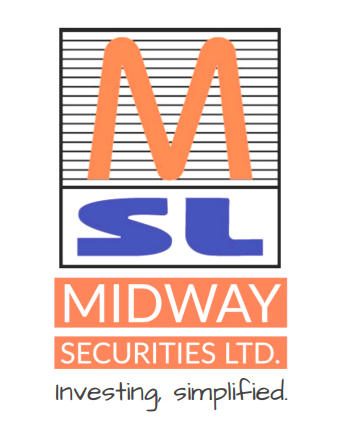midway securities ltd.
স্টক * বন্ড * ইকুইটি ইনভেস্টমেন্ট * আইপিও * বাজার গবেষণা * ক্যাপিটাল ম্যানেজমেন্ট
|
The country's capital market is set to post the highest return in a decade in the outgoing fiscal year (FY), 2020-21, when most other sectors faced serious disruptions in their business operations due to the ongoing Covid-19 pandemic. The stock market witnessed a 51.31 per cent return in the outgoing FY as on June 13, despite the free fall of many stock prices. Initially the fall was contained by setting floor prices, as investors became panicked following the Covid outbreak. Experts and market operators said the investors pumped fresh funds into the stock market - following decline in interest rates of other fixed income securities along with various regulatory reforms in market operations. "The flow of liquidity increased in the stock market, as returns in other sectors declined," said Ahsan H Mansur, executive director at Policy Research Institute (PRI).
He said the investors' increased participations in stocks indicated that the securities regulator was able to restore their confidence in the market. Except the outgoing FY, the Dhaka Stock Exchange (DSE) witnessed nominal returns for five FYs; and the returns were even negative for the remaining five FYs, taken into account since 2010-11. The market return of a stock exchange is determined through the return of its benchmark index. After the 2010-11 stock market debacle, the DGEN, the then benchmark index of the DSE, witnessed negative returns of 0.59 per cent and 25 per cent for 2010-11 and 2011-12 respectively. Later, the premier bourse posted a positive return of 0.07 per cent in 2012-13. The DSE introduced new benchmark index - the DSEX - on June 27, 2013 with a base of 4,055 points. After introduction of the DSEX, the DSE posted a 9.16 per cent return in 2013-14, while the return was 2.30 per cent in 2014-15, and 25.49 per cent in 2016-17. The market returns were negative for 2015-16, 2017-18, 2018-19 and 2019-20, ranging from 1.65 per cent to 26.41 per cent. Finally, on June 13 the DSEX closed at 6,036, posting the highest return of 51.31 per cent or 2,047 points since the 2010-11 debacle. Azam J Chowdhury, president of the Bangladesh Association of Publicly Listed Companies, said mainly the regulatory reforms played an important role in restoring the investors' confidence in the country's stock market. "The regulatory steps, including formation of the market stabilisation fund, helped the market to witness the investors' increased participation," Mr. Chowdhury told the FE. In early May, the Bangladesh Securities and Exchange Commission (BSEC) approved rules to create a market stabilisation fund worth around Tk 210 billion with unclaimed and unsettled dividends of listed companies. According to information of the Dhaka and Chittagong bourses, 335 listed companies have unclaimed cash dividends worth Tk 9.56 billion and unclaimed or unsettled stock dividends worth Tk 199.86 billion. Along with posting the highest return in index in the outgoing FY, the DSE witnessed hefty turnovers, especially in May and June. In the last two months, the DSE posted daily turnovers ranging from Tk 11.60 billion to Tk 27.00 billion. Following the investors' increased participation, the DSE's market capitalisation also hit an all-time high of Tk 5.10 trillion on June 10. Md. Moniruzzaman, managing director at IDLC Investments, said the listed securities became lucrative when the returns or yields of other fixed income tools declined. "The investors start to inject funds into the stock market when the interest rates and returns from other investment tools decline. Listed stocks become lucrative to the investors when their returns decline in other sectors." He added that the easy monetary policy and the regulatory reforms also helped the stock market to witness the investors' increased participation. The insiders said the banks presently offer interest rates ranging from 3.0 per cent to 4.0 per cent against the FDR (fixed deposit receipt). During the outgoing FY, the return from the stock market was also much higher than those of T-bonds and gold. During the period, the yield from the 10-year T-bond was 30.3 per cent as per the discounted rate. On the other hand, gold witnessed 19.4 per cent rise in market price to close at US$ 60,773 per kg as on June 9. Mr Ahsan H Mansur, however, said returns of the stock market should not be compared with those of other investment tolls such as bonds. "The investors' funds are shifted to the stock market when the returns or yields in other sectors decline," Mr. Mansur added. The authorities concerned confirmed first three patients of Covid-19 in Bangladesh on March 8, 2020. After the virus outbreak, the country's both the bourses witnessed free fall in broad indexes, and the market remained closed for 66 days from March 26 to May 30 in 2020 following the countrywide lockdown. To contain the abnormal price fall, both the bourses set floor prices for listed securities on March 19 in line with a directive issued by the securities regulator. Prof. Shibli Rubayat Ul Islam joined as the BSEC chairman on May 17, and later three commissioners were also appointed following the completion of tenures of the previous chairman and commissioners. Source: thefinancialexpress
0 Comments
Leave a Reply. |
Midway News TeamWe publish the latest stock market news to help you decide on your investment decisions. Archives
June 2024
Categories |
